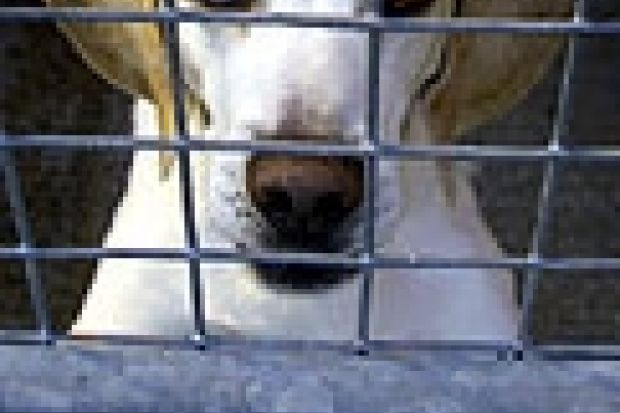Two countries face hefty European Union fines. Keith Nuthall reports.
The European Commission is to take the Belgian and Dutch governments to the European Court of Justice, claiming that they have broken European Union animal experimentation legislation.
If the two national governments are found by judges to have failed to comply with directive 86/609/EEC on the protection of animals used for experimental and other scientific purposes, they will be forced to reform their national practices.
Failure to do so could lead to massive daily recurring fines of €100,000 (£63,000), which are payable until they comply with an order of the court.
Looking at the detail of the commission's cases, it says that the Dutch legislation does not fully implement the directive's rules by: failing to ban the use of certain endangered animal species; having inadequate safeguards on the release of animals; not recognising the validity of data from animal experiments carried out in other member states, and so preventing the duplication of tests.
In reply, the Netherlands government has argued that some of these rules are covered by the terms of model conditions it has written for the granting of animal experiment licences.
But the commission wants the rules put on the statute book, not in voluntary guidelines. A statement said: "Such non-binding model conditions are not a substitute for binding legislation."
Regarding Belgium, the commission claims that its authorities allow too many experiments to be carried out on cats and dogs not bred for the purpose. As a general rule the directive requires the use of bred animals, but special exemptions are possible. The statement said: "The statistics suggest that the Belgian authorities have been too lax in the granting of such exemptions. It also raises a question over whether the scientific justifications for such exemptions have been thoroughly examined."
Belgium has "signalled a willingness" to reduce the number of these experiments, but the commission claims that "corrective measures... have still to be adopted."
EU environment commissioner Margot Wallstrøm - whose directorate general has promoted the legal action - said: "While Dutch practice seems satisfactory, the Netherlands needs to make a bigger effort to bring its national legislation into line with the directive. This will give greater assurance that the strict conditions laid down for animal experiments in the directive are always followed. As regards the Belgian authorities, I would urge them to ensure strict control on the use of exemptions."
Register to continue
Why register?
- Registration is free and only takes a moment
- Once registered, you can read 3 articles a month
- Sign up for our newsletter
Subscribe
Or subscribe for unlimited access to:
- Unlimited access to news, views, insights & reviews
- Digital editions
- Digital access to THE’s university and college rankings analysis
Already registered or a current subscriber?
